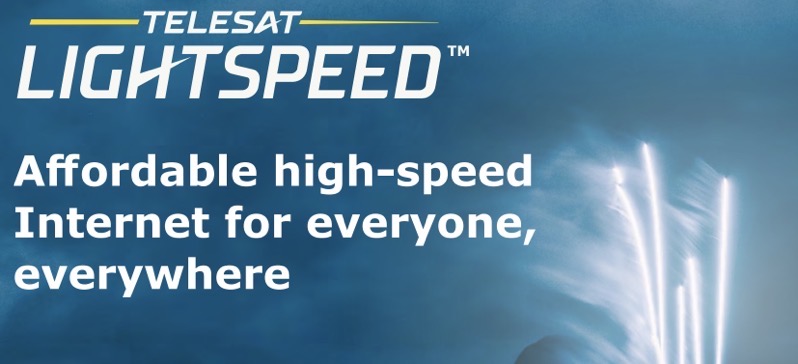
Feds Loan $2.1 Billion to Telesat for Satellite Internet Project
The federal government continues to support Ottawa-based Telecast’s satellite internet project, known as Lightspeed.
On March 28, 2024, Telesat received a letter from Minister of Innovation, Science and Industry, François-Philippe Champagne, detailing the federal government’s agreement to loan Telesat $2.14 billion for the Lightspeed low-Earth orbit high speed satellite internet project.
The 15-year loan was made to Telesat LEO Inc., a subsidiary of Telesat behind the Lightspeed project, with a floating interest rate at 4.75%. The federal government will also acquire a 10% equity stake in Telesat LEO, valuing the company at $3 billion.
“Telesat Lightspeed is a highly innovative and disruptive global broadband network and the largest space program in Canada’s long and distinguished history as a space faring nation,” said Dan Goldberg, Telesat’s President and CEO, in a statement to iPhone in Canada on the quiet Easter Monday holiday.
“I am delighted with the engagement we have had with the Government of Canada on this flagship program, which will help bridge the global digital divide, create and sustain thousands of high-quality jobs in Canada, spur domestic innovation, investment and exports, and ensure that Canada is at the forefront of the rapidly growing New Space Economy,” said Goldberg.
“We estimate that, in addition to the roughly US$2 billion of capital cost savings, we will realize roughly US$750 million of savings in reduced borrowing costs relative to the original Telesat Lightspeed program,” he added.
It’s been a long journey so far for Telesat, as back in 2021, the feds invested $1.44 billion into the Lightspeed project, in the form of a $790-million repayable loan and a $650-million preferred share equity investment. The Quebec government has also invested $400 million into Telesat, which has its origins as a crown corporation. Bell acquired the company in 1998 and later sold it for $3.25 billion in 2007.
Lightspeed won’t be a direct-to-consumer satellite internet offering, like SpaceX’s Starlink. Instead, it will sell its satellite internet to companies such as telecoms to resell to consumers.
Last fall, Telesat signed a deal to have Elon Musk’s SpaceX launch its Lightspeed satellites into space, beginning in 2026, ahead of the company’s enterprise internet service launch in 2027. Ironically, SpaceX is helping launch satellites of a potential Starlink rival to space. But for now, Starlink has over 5,000 Starlink satellites in low-Earth orbit offering high speed internet to everywhere on Earth, while Telesat has just one (a test satellite).


